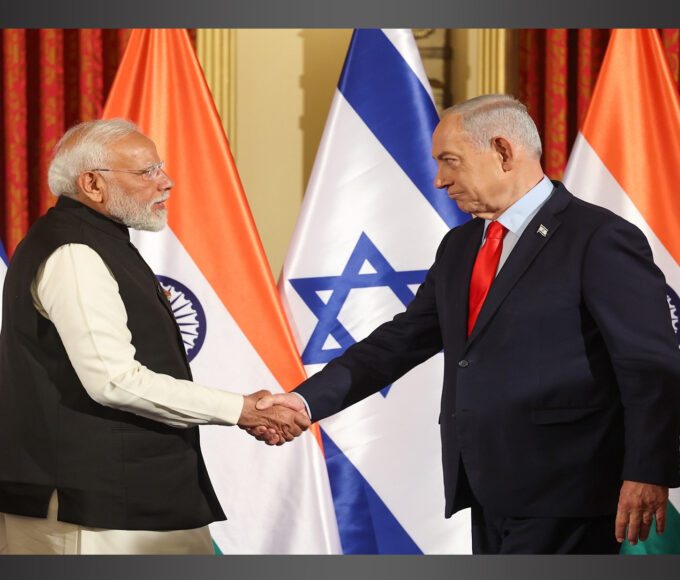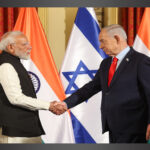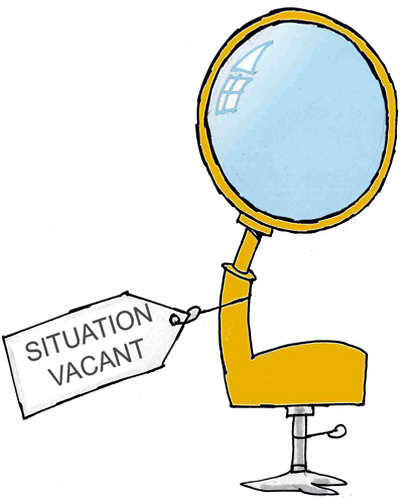WHAT started as a proposed idea has now emerged in a concrete form with the Department Of Personnel and Training issuing an advertisement for induction of ten persons from outside the government to man joint secretary level posts in the Union government. I had then welcomed the ideas of opening windows to let fresh air in the corridors of power invigorate the much abused civil service, IAS in particular.
In my piece in gfiles one year ago, I had suggested that “…the issue should be given a careful consideration before an irreversible decision is taken, since a decision of disturbing the precarious administrative equilibrium could lead to serious implications. Perhaps an initial pilot programme involving technical and infrastructural ministries is indicated. There are places where the government can use these lateral entrants more gainfully; for instance, they can be engaged in organisations like NHAI and DGFT. The process of inducting lateral entrants into senior positions of Civil Service should also be subjected to the same high quality of recruitment process as UPSC selection, so that unscrupulous decision makers do not take advantage and recruit people of their choice”.
The idea of lateral induction is not new. It was recommended by the 2nd Adminis-trative Reform Commission, high level committees appointed by different governments and a number of think tanks. In fact, this approach has been adopted in the past with distinctive success. Nandan Nilekani did a credible job of creating a platform for unique identity for a nation of a billion people. Vijay Kelkar spearheaded the ministries of Petroleum and Finance with distinction. Mantosh Sondhi and DV Kapoor are still remembered for their signal contribution to industrial development. Loveraj Kumar is fondly remembered by dozens of IAS officers who worked with him and is celebrated through an annual LK Memorial Lecture.
It is reported that with a view to bring fresh thinking and dynamism in the Whitehall, the UK government tried inducting people from the private sector during Tony Blair’s tenure. However, according to the British government, the experiment did not work well and most of the appointees left or their contracts were not renewed after initial two years. The reasons for the failure were their frustration with the pace of decision making and enacting laws; absence of a clear-cut boss like In private companies; their inability to grasp the nuances of government functioning; a feeling that vested interests created hurdles in policy formulation; non-cooperation from career bureaucrats; non-recognition of outstanding work and no faster promotions like the private sector.
I think that after three years, the 10 joint secretaries would be giving us similar reasons/excuses of why they, despite their best efforts, could not improve the working to their respective ministries. They would, in all probability, be blaming the system or bureaucratic non-cooperation to explain their failure.
This, therefore, is not the best way to bring new energy in the working of the government. I believe that there are some issues that must be considered before a mature decision on the problem of sustained inertia in government can be taken.
Accountability is a genuine concern with short tenures in any organised system as short temporary short tenures are not conducive to authentic accountability. If something goes wrong on account of the out-of-the-box thinking after the incumbent leaves the government, it would be difficult to fix responsibility. One should not forget that joint secretary in government is a vital level in policy making.
Similarly, the importance of an unassailable recruitment procedure cannot be overestimated. Caesar’s wife should appear beyond reproach in addition to being incorruptible is the old adage. How will we prevent the perception that everything is not well with the selection. One would not be surprised if fingers are raised. Adopting a fool proof procedure like recruitment through UPSC like the civil service recruitment could obviate such questioning. UPSC could easily formulate necessary selection criteria based on the requirements of the government. In the present case, this aspect has been completely overlooked by resorting to an ad-hoc process of selection.

It is often forgotten that there is specialisation in the IAS too, and not as an exception to the norm. I know of scores of IAS officers who have worked in the same sector for 15-20 years. Besides, IAS officers specialise in understanding the problems of the people living in the hinterland, in the countryside, in forests and hills, in the dessert and on the islands. You can see their aggregate performance in a negative light or in a positive light depending on the colour of your glasses you wear. My answer to the weaknesses of the bureaucratic system is not to tinker with the induction process but to reform the whole system. You cannot achieve much by bringing people from outside when the leadership remains unchanged. Merely to say that the top leader works for 18 hours a day without taking a day’s leave is not enough. Enlightened leadership should be displayed at every politico-bureaucratic level in the government. There are areas crying for reforms. Institutions are being battered despite an inspiring leadership at the top. But that is another story.
Creative individuals can be brought in to infuse some dynamism in the hierarchical governmental structure even today without any resistance from anyone, but to institutionalise it in the form of a regular recruitment on the lines of civil service recruitment (that too through the proposed uneven selection process) is another thing altogether.
We should do it with a lot of deliberation and preparation. What we are looking for should be explicitly defined. Merely saying that, “…Qualifications: Graduate from a recognised University/Institute. Higher qualifications would be an added advantage…” is not adequate. Are we looking for individuals who have already displayed creativity elsewhere? Good, take them in, not only at the level of a joint secretary but much higher.
Want to give IAS officers a run for their money? OK, give the new entrants separate areas of responsibility where IAS officers cannot thwart their efforts. Or better still, set up executive agencies with clear-cut objectives and give them the leadership of the agencies. Want to improve the delivery of public services? Create new institutions with leaders from the private sector rather than adopt a half way measure. Why stop at a half way house, go the whole hog. Don’t walk with a stone in your shoe.
Another way to benefit from the experience of the private sector is to establish social businesses in collaboration with corporate houses (like Mohd Yunus of Bangladesh) and place the selected individuals at the head of the businesses.
FINALLY, in my view, searching for persons with proven record of Public Service should be at the top of government’s agenda to induct new energy in the system. It cannot be disputed that there is a severe lack of the spirit of service in the government as well as in the private sector. This point is always missed in any discussion on governance that besides efficiency and creativity, a spirit of serving the people is absolutely essential for good governance. With proper selection and scrutiny, we can get scores of individuals whose total concern would be service to the people. Bring proven leaders from Non-governmental institutions like Sulabh International, Swami Vivekananda Youth Movement, Vikas Bharti, Tarun Bharat Sangh; Maharashtra Knowledge Corpora-tion, or Barefoot College, and no fingers would be raised.
Endpoint: We do not see things as they are. We see them as we are told to see.
The writer is former Cabinet Secretary
Prabhat Kumar is an Indian Administrative Service officer of the 1963 batch, he served as the Cabinet Secretary of Government of India between 1998 and 2000. Upon creation of the State of Jharkhand in November 2000, he served as the first Governor.

















































